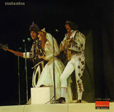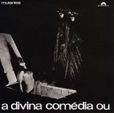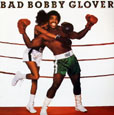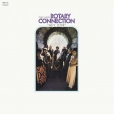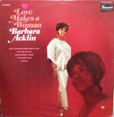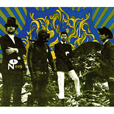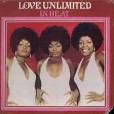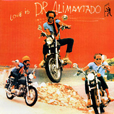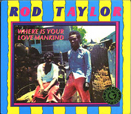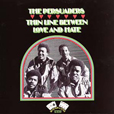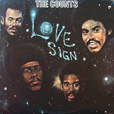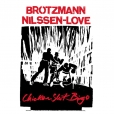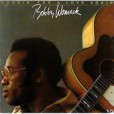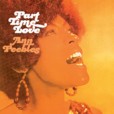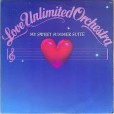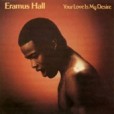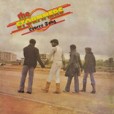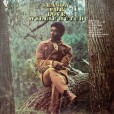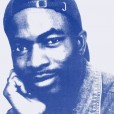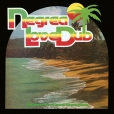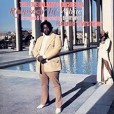Your basket is empty

Their third LP; generally considered their best. From 1970, with the military crackdown in full swing, and Caetano Veloso and Gilberto Gil already in exile.
Ebullient Troutman business, great throughout, with exemplary Zapped funk, fine ballads and a couple of irresistible rare grooves. CD from Expansion.
Her legendary, heart-wrenching recording for Capitol in 1969; now remastered all-analogue-style from the masters; with a decent booklet.
Previously unissued underground rock from 1969, Rockford, Illinois.
Brilliant Barry White production from 1974, and one of the girls’ very best, kicking off with Move Me No Mountain, shutting it down with Love’s Theme.
From 1982, with his boom tune Buttercup. Arrangements by Teena Marie; Jamaican pressing and sleeve. CA was at Motown from 1972 — behind the scenes on Songs In The Key Of Life, for example.
‘Minimalism is usually cool, detached, frictionless and mathematical. The music made by percussionist Bex Burch is not any of these things. What she calls ‘messy minimalism’ shares some characteristics with the music of Steve Reich and John Adams, but this is minimalism that isn’t afraid to break into a sweat and get its hands dirty (quite literally, given that Burch actually builds her own instruments from scratch). She mainly plays a gyil, a marimba-like tuned percussion instrument she learned while studying music in Ghana.
‘Burch’s first solo album lands her in Chicago, enlisting trumpeter Ben LaMar Gay and members of Tortoise. Sometimes, the results sound like an earthier Philip Glass: Dawn Blessings pairs her dreamlike, two-note gyil pattern with violinist Macie Stewart’s beautiful harmonies; Don’t Go Back to Sleep sees Burch’s gyil fractionally out of phase with a synthesiser, then spins into hypnotic but disorientating minimal techno.
‘Other tracks get wilder. There are drum circles, water drums and birdsong; tracks that exploit the acoustics of a California canyon. Pardieu turns a three-note xylophone riff into a compelling funk groove; Fruit Smoothie With Peanut Butter is a wonderfully chaotic drum circle that sounds melodic despite not featuring any tuned instruments. Best of all is You Thought You Were Free?, which layers clattering percussion over the wailing siren of a tornado warning relayed over Chicago until it sounds like a freakish fusion of the Master Musicians of Joujouka and Fela Kuti’ (The Guardian).
‘Brotzmann barely plays saxophone at all, sticking mostly to tarogato and a host of clarinets; Nilssen-Love mostly plays gongs, bells and other metal percussion. With the changes in tools comes a change in approach. Nilssen-Love is sparer and more decorative, providing accentuating commentary that highlights the more solemn and yearning aspects of his partner’s playing, and Brotzmann explores melancholy to devastating effect. This is a career peak for the recently departed reedist’ (Bill Meyer, The Wire).
Classic early-eighties Nigerian disco, fronted by Ronnie Pearl from Aktion and Jake Sollo from the Funkees.
Originally self-released in 1993 by Peter Mekwunye as a small-run cassette, soon after his arrival in the US from Nigeria. Moody, personal, moving, freeform afro-pop, or DIY soul, using just a Casio keyboard and a microphone, with a rawly naked message of love, struggle, spirituality and hope, ‘dedicated to all Nigerians all over the world, and to all freedom fighters around the world.’ Strange — a bit like eavesdropping on someone talking to himself — and warmly recommended.
We got these from Mississippi.
